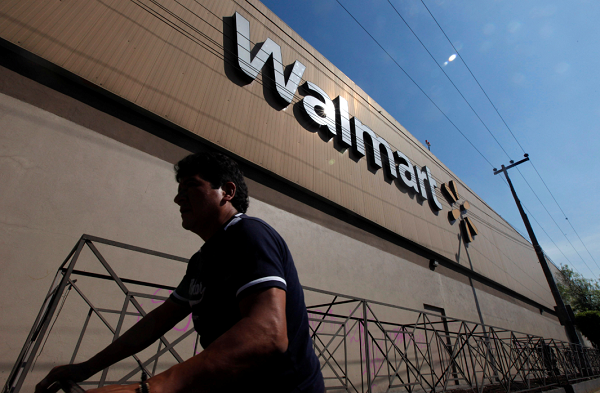Wal-Mart Craft Beer Controversy: Ohio Man Sues Retail Giant For Selling Specialty Brews

Wal-Mart, which debuted its own line of “craft” beers last year, is being sued by an Ohio man who said the retail chain was misleading customers by selling beer marketed and sold at craft prices that actually falls under the criteria for mass-produced beer.
In the class-action lawsuit filed Friday, plaintiff Matthew Adam accused Wal-Mart of promoting “wholesale fiction” that was “designed to deceive customers into purchasing the craft beer at a higher, inflated price,” court documents alleged.
Wal-Mart’s line of beers came under suspicion initially following a Washington Post analysis of the megachain’s Cat’s Away IPA, After Party Pal Ale, Round Midnight Belgian White and Pack of Trouble brew that determined Wal-Mart’s partnering beer company, Trouble Brewing, didn’t actually exist.
After some investigation, it was determined the actual company that produces the beers was listed with the Treasury Department’s Alcohol and Tobacco Tax and Trade Bureau (TTB) as Winery Exchanged, which has since turned into WX Brands. WX Brand’s website states the company “develops exclusive brands of wine, beer and spirits for retailers around the world. However, the “brewery address” for WX Brand under TTB filings lists Genesee Brewing’s business office in Rochester, N.Y., which is owned by a different company that produces a high volume of Costa Rican lager and other large industrial brand beers, well over the amount of beer that the Brewers Associations defines as craft beer.
really @Walmart? Hard to see this lawsuit going far, but still | Walmart is Being Sued For its Fake Craft Beer Brand https://t.co/zRLINLk5TA
— Nick Ayres (@nickjayres) February 16, 2017
For a beer to be considered craft, the association said a brewer must have an annual production of no more than 6 million barrels. For a brewery to be deemed independent, less than 25 percent of the company can be owned or controlled by “an alcoholic beverage industry member that is not itself a craft brewer.” Crafts also have to be “traditional,” which means a brewer’s product is mostly produced through “traditional or innovative brewing ingredients and their fermentation.”
Adam’s lawsuit against Wal-Mart states the retail store’s four brews don’t meet the craft criteria mandated by the association and pointed out Genessee Brewing produces significantly more beer for the 3,000 stores and 45 states in which Wal-Mart’s “craft” brands are sold than what’s required for craft beer.
This isn’t the first time Wal-Mart has come under fire for misleading shoppers. In November, a Michigan woman sued the retail giant for selling sheets marketed as 100 percent Egyptian cotton that actually were made with cheaper fibers.
© Copyright IBTimes 2025. All rights reserved.






















